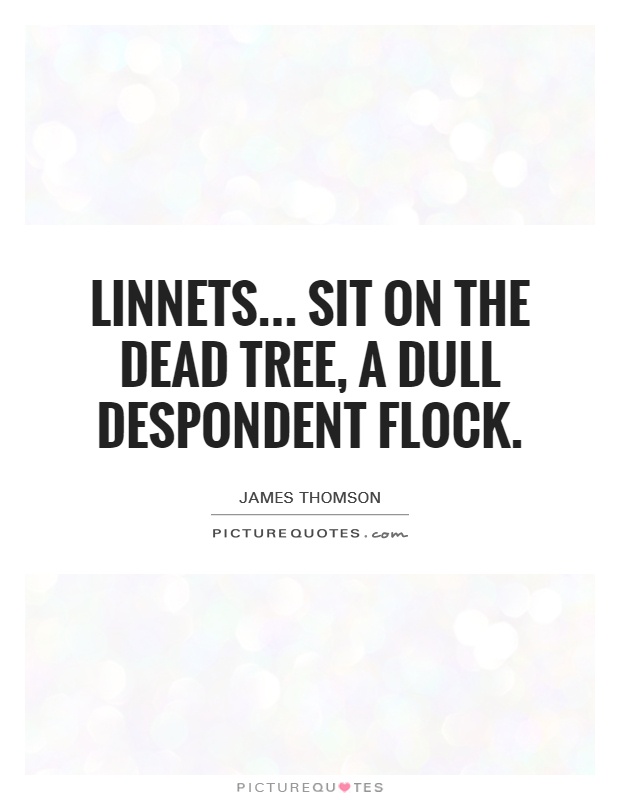Linnets... Sit On the dead tree, a dull despondent flock

Linnets... Sit On the dead tree, a dull despondent flock
In James Thomson's poem "The Seasons," the line "Linnets... Sit on the dead tree, a dull despondent flock" captures a sense of melancholy and despair that permeates the natural world. The image of the linnets, small songbirds known for their melodious calls, sitting on a dead tree evokes a sense of loss and decay. The once vibrant and lively tree now stands as a stark reminder of the impermanence of life and the inevitability of death.Thomson's use of the word "dull" to describe the linnets further emphasizes the sense of listlessness and despondency that hangs over the scene. The birds, usually known for their lively and cheerful demeanor, now appear subdued and dejected, mirroring the somber mood of their surroundings. The dead tree serves as a symbol of mortality and the passage of time, a reminder that all living things must eventually succumb to the ravages of age and decay.
The juxtaposition of the linnets, symbols of life and vitality, with the dead tree, a symbol of death and decay, creates a powerful contrast that highlights the fragility and transience of existence. The image of the birds perched on the lifeless branches of the tree serves as a poignant reminder of the cyclical nature of life, where death and rebirth are inextricably linked.
Thomson's evocative language and vivid imagery bring to life the beauty and brutality of the natural world, capturing the complex interplay of life and death that defines the human experience. Through his depiction of the linnets sitting on the dead tree, he invites readers to contemplate the fleeting nature of life and the inevitability of mortality, urging them to find solace in the enduring beauty of the natural world despite its inherent impermanence.












 Friendship Quotes
Friendship Quotes Love Quotes
Love Quotes Life Quotes
Life Quotes Funny Quotes
Funny Quotes Motivational Quotes
Motivational Quotes Inspirational Quotes
Inspirational Quotes